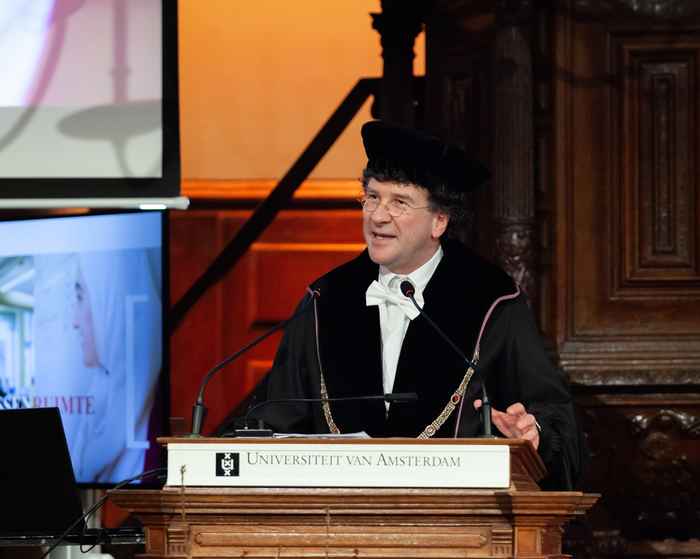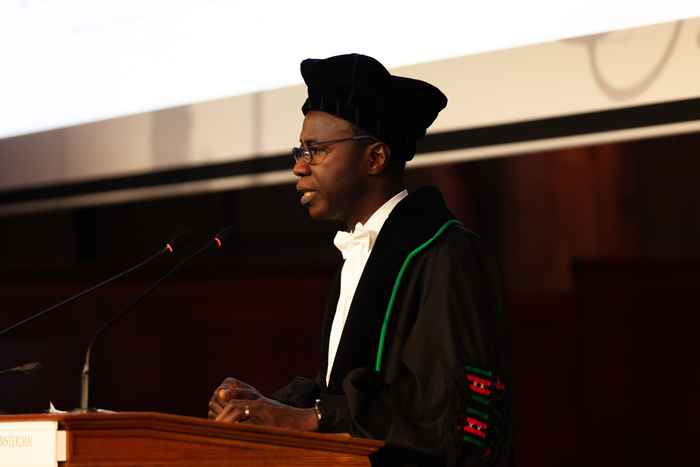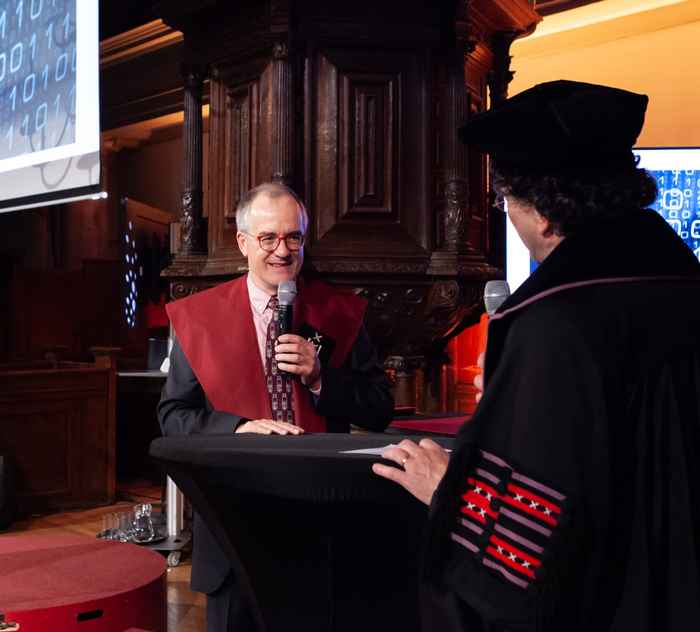UvA celebrates its 391st anniversary
12 January 2023
During his inaugural speech, Verbeek discussed the role of the university in the 21st century. This was followed by Professor of Migration and Health Charles Agyemang’s Dies speech on the increase in social inequality and diversity, mistrust in politics and steps that can be taken to build trust. The university was also proud to award honorary doctorates to Professor of Computer Science and Linguistics Christopher Manning and Professor of Global Health Vikram Patel. The Dies celebration was closed by UvA alumna Anouk Harmans, who shared her spoken word piece Tussen wal en schip vliegen de vrije vogels (‘Between shore and ship the free birds fly’).

The social university in a science-driven society: a plea for space in between
In his inaugural speech on his 100th day at the UvA, Peter-Paul Verbeek discussed the changing context in which the university operates. ‘Science becomes part of society and society becomes part of science. Without science, politicians can no longer make informed decisions, and scientists’ agendas are increasingly determined by society’s agenda. These developments call for a reconsideration of what a university should actually be,’ Verbeek said.
According to the Rector Magnificus, the role of the university in the 21st century lies in the unique way it manages to connect two seemingly paradoxical dimensions of science: critical distance that leads to truth and insight on the one hand and social engagement that leads to impact on the other. ‘And that requires space: an in-between space that helps shape the nature of these connections and for which both science and society bear their own responsibility.’

Diversity and equality: trust, trust and more trust
Dies speaker Charles Agyemang, professor of Migration and Health, explained in his speech that society is becoming increasingly diverse and that social inequality is growing. ‘The rise in social inequality creates a contradiction in democratic ideals of fairness and equality. It leads to tensions within society and thus undermines the social contract on which society depends,’ Agyemang said. According to Charles Agyemang, the social contract is an agreement between citizens and the government in the form of an organised society based on the right to protection and security. ‘A fundamental building block of a strong social contract is that citizens can trust their government. Trust is the glue that holds society together.’
He emphasised that additional efforts are needed to involve everyone within society. ‘The power of diversity for society can only be unleashed when we acknowledge our differences and learn to respect and appreciate them. This requires an investment in time, resources and intensive cooperation with a group with diverse backgrounds.’
Awarding of honorary doctorates
Following the Dies speech, honorary doctorates were awarded to computer scientist Christopher Manning and psychiatrist and mental health researcher Vikram Patel.

Christopher Manning
Christopher Manning is professor of Computer Science and Linguistics at Stanford University. He is also a key figure in research on Natural Language Processing (NLP).

Vikram Patel
Vikram Patel is professor of Global Health at Harvard Medical School. Patel is a renowned psychiatrist and researcher in the field of mental well-being. His work focuses on the burden of mental health problems, their relationship to socio-economic disadvantage and the use of psychological interventions to treat common mental conditions such as depression.
Read more about the honorary doctorate recipients
Tributes to both honorary doctorate recipients were made by UvA study associations in their respective fields. Students from the VIA study association surprised Manning with humour and jokes based on artificial intelligence. The MFAS study association challenged attendees in the Aula to take part in a yoga quiz.